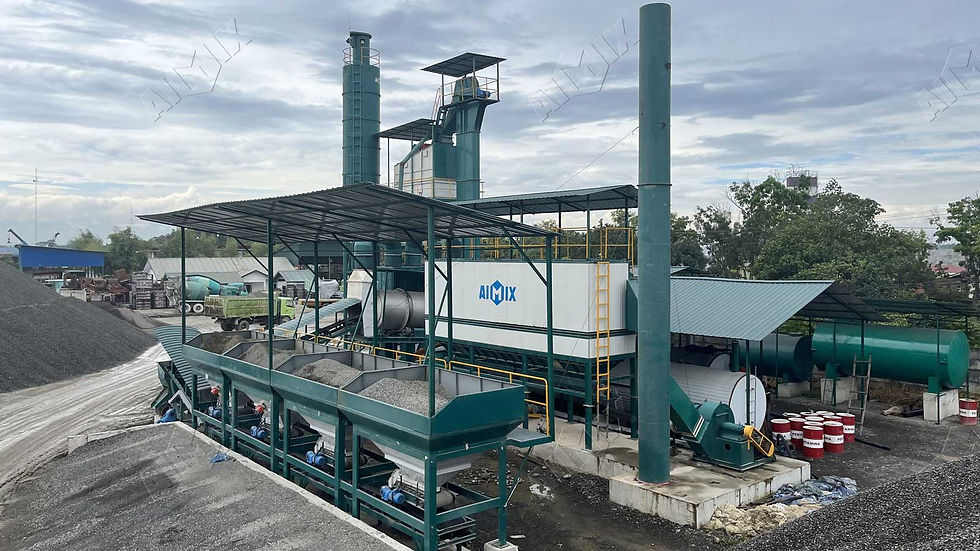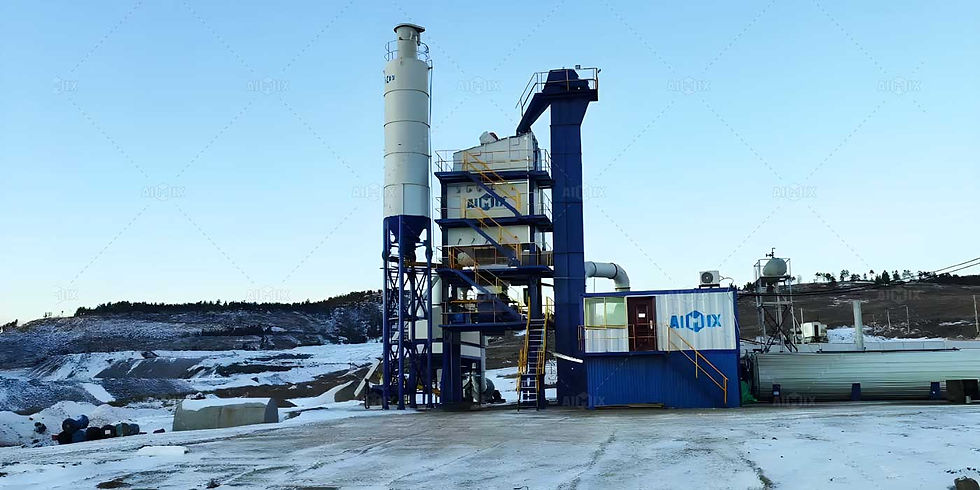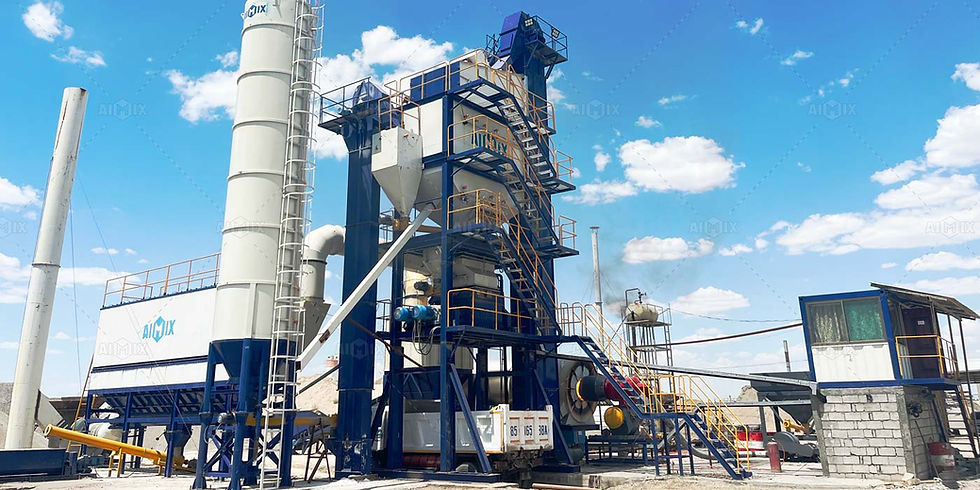Is a Batch Type or Drum Type Asphalt Plant Better for 5–10 km Bridge Pavement in 2 Months?
- aimixglobal5
- Jul 24, 2025
- 3 min read
For contractors planning a 5–10 km bridge pavement project with a two-month deadline, selecting the right asphalt mixing plant can directly affect project efficiency, material quality, and cost control. The key decision often comes down to choosing between a batch type asphalt plant and a drum type (continuous) asphalt plant. While both options are widely used in road construction, their suitability varies based on project size, quality requirements, mobility needs, and time constraints.

Understanding the Differences: Batch Type vs. Drum Type Asphalt Plant
Before making a decision, it’s important to understand how these two types of plants work and what makes them distinct.
Batch Type Asphalt Plant
A batch mix plant produces asphalt in individual batches. Each batch is precisely measured and mixed, offering a high level of control over asphalt composition. This method ensures consistent quality and allows for flexibility in mix design. However, it requires more time per cycle and often involves higher energy consumption.
Drum Type Asphalt Plant
Drum mix plants operate continuously. Aggregates and bitumen are fed into a rotating drum where mixing happens on the go. These plants are simpler in design, easier to move, and faster in production. However, they offer less control over mix accuracy and are better suited for large-volume, uniform paving jobs.
With a clear understanding of both systems, let’s examine which one fits your bridge pavement timeline and quality needs.

Project Requirements: What Does a 5–10 km Bridge Pavement in 2 Months Demand?
Bridge pavement projects typically demand higher material quality than ordinary roadworks. The pavement must resist deformation, handle temperature variations, and ensure long-term durability. Additionally, a 2-month time frame puts pressure on plant mobility, setup time, and production efficiency.
Quality Consistency
Since bridge decks are more sensitive to material variation, maintaining consistent asphalt composition is critical. Here, batch plants hold a clear advantage. They allow recipe adjustments and fine control over aggregate sizes and binder ratios—something that continuous plants struggle with.
Production Speed
However, time is tight. Completing 5–10 km of bridge surface in 60 days (excluding rain days and setup time) requires daily production to be highly efficient. Drum mix plants can produce large volumes continuously, without interruption, making them appealing if quality compromise is acceptable.
Plant Setup and Mobility
Bridge works often happen in constrained spaces or remote areas. A mobile drum mix plant can be quickly transported and installed with less civil work, especially the trailer-mounted versions. In contrast, batch plants are more complex and may require a larger footprint and more setup time.
Considering the above, the best asphalt plant choice often depends on how the contractor balances production speed with asphalt quality.

Real-World Scenarios: Choosing Based on Priority
Let’s break it down into two scenarios to help you decide:
Scenario 1: Quality is Top Priority
If your project is government-funded or requires strict material certification, go for a batch type asphalt plant. The flexibility to adjust recipes and the precision of mixing ensure that each load meets the specification. You may need to work longer hours or use a higher-capacity model to stay within your timeline.
Scenario 2: Speed and Cost Matter More
If the project allows for slightly more flexible mix tolerances and you're focused on staying within a tight budget and deadline, a drum type asphalt plant makes more sense. Especially if it’s a mobile drum mix plant, you save on foundation work, installation time, and fuel consumption.
Of course, selecting the right plant size is equally important. For a 5–10 km bridge in two months, you'll likely need a capacity of 60–100 tons per hour depending on asphalt layer thickness and daily work hours.

What We Recommend Based on Industry Experience
From our experience working with bridge contractors in Southeast Asia, especially Indonesia, the final decision often leans toward a mobile drum plant for ease of deployment and faster production. But for high-end expressways or toll bridges with strict technical supervision, batch plants remain the top choice.
We recommend evaluating:
Asphalt layer thickness and tonnage demand per day
Project budget and material specifications
Work site access and setup conditions
Local climate (especially rain delays in tropical regions)
Need Help Choosing the Right Asphalt Plant?
We understand that each project is different. That’s why we offer both batch type and drum type asphalt plants with a wide range of capacities, mobile options, and installation support. Our technical team can help you calculate daily production needs and select the best model for your bridge paving job—without wasting time or budget.
Contact us today to get a personalized recommendation and quotation. Whether you're building a rural overpass or a major city viaduct, we have the solution to keep your project on track and compliant.



Comments